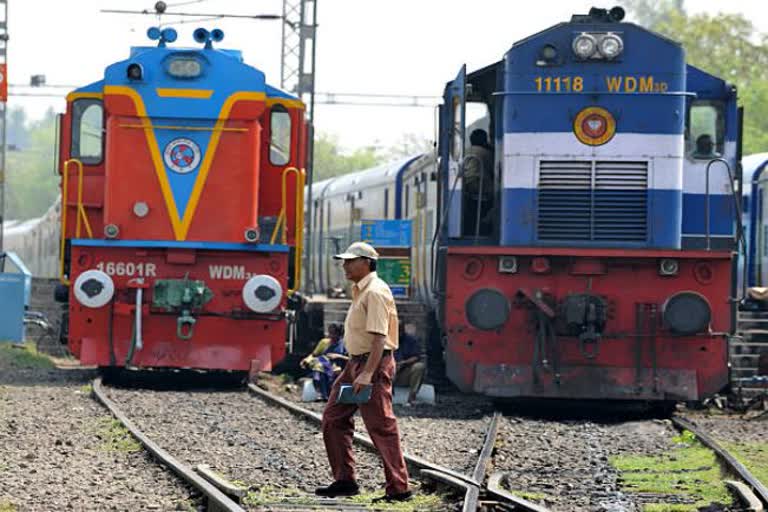Hyderabad: Indian Railways took a major step towards privatization on 1 July when it invited proposals from private companies to run 151 modern passenger trains to run on 109 pairs of routes across the country, potentially resulting in private investment of Rs 30,000 crore in the sector.
The railway ministry says “the objective of this initiative is to introduce modern technology rolling stock with reduced maintenance, reduce transit time, boost job creation, provide enhanced safety, provide world class travel experience to passengers, and also reduce demand supply deficit in the passenger transportation sector”.
But examples of railway privatization globally indicate that it can prove to be a complicated process – like in the case of the Britain. British Rail, which owned and operated nearly all of the country’s railways, underwent a total privatization in 1993. The infrastructure was spun off as ‘Railtrack’, while dozens of franchises were then awarded to private companies to operate trains on the various lines. The separation of infrastructure and operations failed miserably. Railtrack has since been nationalized, but private firms still run on the vast majority of lines.
It can be argued that India is a different geography altogether and it’s not opting for total privatization like Britain. “Private participation in passenger train operations will only be 5% of the total operations of Railways,” Chairman of Railway Board Vinod Kumar Yadav mentioned that on Thursday during an online media interaction.
However, some underlying concerns still remain. Private trains and Indian Railways will be allowed to run train services using the common infrastructure of the railways (tracks and signalling systems etc). Firstly, the existing rail network is already choked, especially in the 12 clusters where private trains will start playing from 2023 -- Bengaluru, Chandigarh, Jaipur, Delhi, Mumbai, Patna, Prayagraj, Secunderabad, Howrah, Chennai. Secondly, any possibilities of preferential treatment given to any party on the timetable could be a start to the chain of unfair practices.
Also, there are growing calls for an independent regulator to be set up for private trains in order to make the project a success. The Indian Railways would be a direct competitor to private entities running these trains and it won’t be fair for it to be settling disputes if any arise due to the obvious conflict of interest. An independent regulator would also help in ensuring compliance with policies and procedures, while also keeping a check on safety and security of passengers which is extremely vital for public transport systems.
Read more:Southern Railway sets up biz unit to boost freight traffic
Another contentious issue can be tariffs. Surprisingly, Indian Railways till now hasn’t detailed on the most basic question. What will be the mechanism to fix passenger fares for these private trains? Will they get full freedom in charging what they want, or will there be government’s intervention in the matter?
Railway Board Chairman Vinod Kumar Yadav on Thursday said: “Fares in private trains will be competitive and prices on other modes of transport like airlines, buses have to be kept in mind while fixing the fares.”
Considering that the private entity will pay Indian Railways fixed haulage charges, energy charges as per actual consumption and a share in the gross revenue determined through a transparent bidding process, any restrictions while deciding fares can be a real point of concern for these companies, raising concerns over the viability of their business. On the other hand, higher-than-expected fares will not only put Indian Railways in direct competition with airlines and roadway transport, but may also result in severe public backlash.
It apparently started on Thursday itself when Congress leader Rahul Gandhi tweeted: “The railways are the lifeline for the poor and the government is taking it away from them. Take away what you can. But do remember, the people will give a befitting response to this.”
(ETV Bharat Report)



